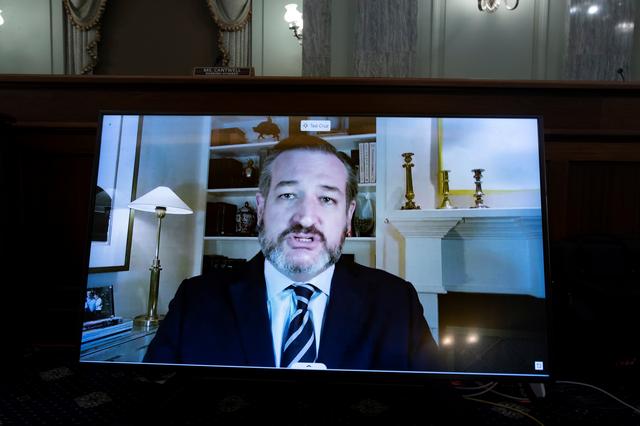
Recent tech policy debates have been animated by the
surprising push by both Democrats and Republicans to reform Section 230 of the
Communications Decency Act, the cornerstone of internet law. But that
bipartisan call masks a significant disagreement between the left and the right
on why and how the law should be changed. For Republicans, the push to amend
Section 230 is driven largely by concerns that social media platforms, as our
primary conduits for online discussion, are disproportionately silencing
conservative viewpoints.

But as I’ve discussed before, Section 230 is a suboptimal vehicle to address these concerns, as the whole point of the statute is to protect the editorial rights of interactive computer services. Rather than fixating on Section 230 as a tool, it is helpful to reframe the debate by asking how traditional conservative values should inform our analysis and what other vehicles are available to address the problem the right wishes to solve.
Conservative
background principles
My sense is that there are at least two broad conservative
principles that should inform the debate over internet regulation but which
have received little attention thus far. The first is a Burkean skepticism
about big, sweeping legal or social change. Edmund Burke, the father of modern
conservatism, reminded us that we are not as smart as we think we are. The
world we have is the product of countless decisions made before us, and
tinkering with the status quo — even to pursue laudable ends — jeopardizes what
gains we have achieved thus far. This seems directly applicable to the Section
230 debate: Much of the internet’s current ecosystem is built on the immunity
that interactive computer services have from liability for their users’ speech.
Altering that immunity could have the unintended consequence of inhibiting the
very speech proponents wish to promote by inducing platforms to read and preapprove
user posts for fear of liability.
The second is a respect for free speech and a distrust of
government efforts to regulate the dissemination of ideas. When the Federal
Communications Commission imposed the Fairness Doctrine, conservatives rightly
recognized that far from vindicating constitutional protections, a government
mandate that broadcasters allow both sides to be heard actually infringed on
the broadcaster’s own First Amendment right of editorial control. Similarly,
conservatives should recoil from laws that commandeer private property to
promote ideas that the property owner disapproves of.
Alternative legal
frameworks
Together, these suggest that reforming Section 230 is a poor
vehicle for conservatives to address the problems they have identified. One
might ask what other legal doctrines might be available — and the answer
depends on what exactly the problem is that Republicans wish to address.
If the concern is that platforms are misrepresenting what
they’re doing — promising to publish users’ messages but stealthily deplatforming
conservative views — then the remedy might be the law of unfair or deceptive
trade practices. This inquiry is complicated by the fact that most websites’
terms of service allow the company to delete offensive content. But it would
suggest stronger transparency requirements so that sites engaged in political
censoring own their choices publicly.
If instead the concern is that platforms treat conservatives
differently than liberals based on their affiliation or beliefs, that sounds
more like antidiscrimination law. Most such laws do not currently recognize
political status as a protected class. But the tenor of Republican
conversation, the sense of victimization that has animated conversations on the
right, and the social shift toward increasing polarization suggest that perhaps
this approach should be put on the table.
Finally, the concern may be that Congress has granted
platforms immunity for carrying user speech without the requirement that they
carry all users on a nondiscriminatory basis. That sounds like traditional
common-carriage law. Though few if any on Capitol Hill have used this term,
much of their rhetoric seems to suggest the unfairness of giving platforms the
benefits of common carriage without the concomitant obligations.
Conclusion
This is not to suggest Congress should necessarily move in
any of these directions. I believe in evidence-based decision-making, and I
have not yet seen the case proven that social media displays systemic bias
toward conservatives (as opposed to some high-profile anecdotes). And some
members may be reluctant to embrace doctrines such as expanded
antidiscrimination law or common-carriage obligations, which are more commonly
associated with the left. But these legal frameworks better fit the concerns
that have spurred Republicans to action on this issue, and viewing them through
these lenses gives policymakers a better sense of what precisely the problem is
and whether congressional action is an appropriate solution. By focusing on
what exactly conservatives wish to solve, we can expand the field of legal
options beyond simply threatening to repeal Section 230 as a stick to force
platforms to play nice.
The post Beyond 230: Reframing the conservative debate over social media regulation appeared first on American Enterprise Institute – AEI.
